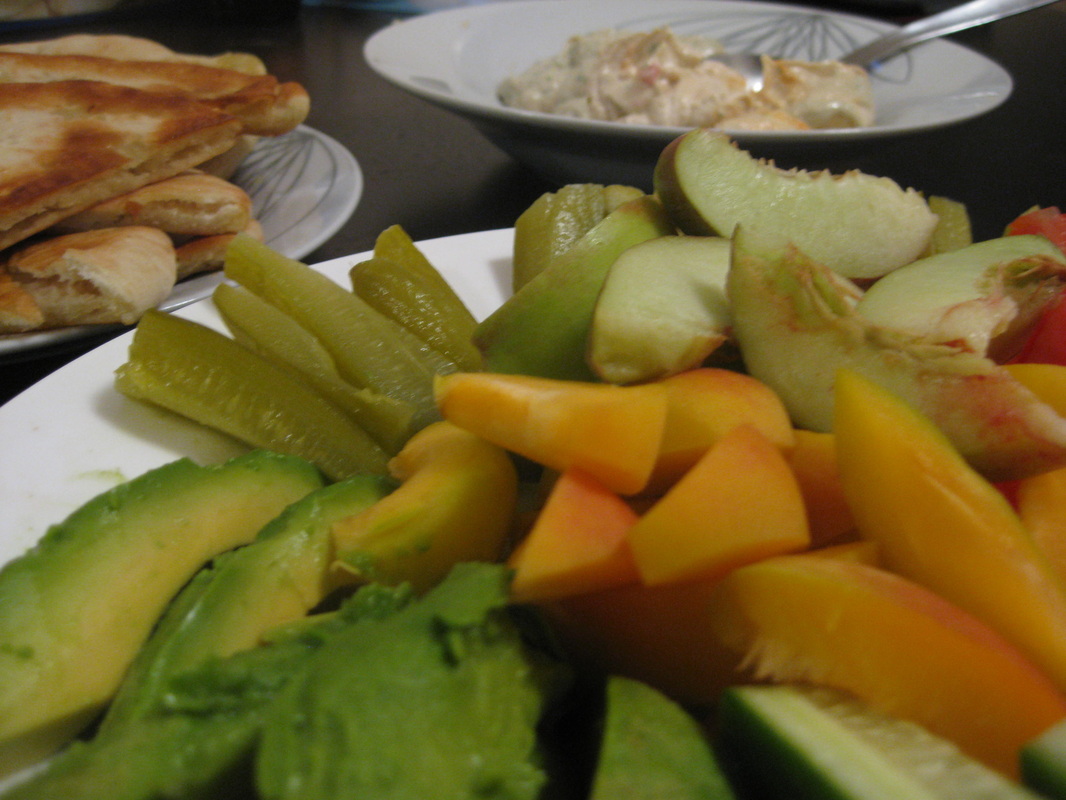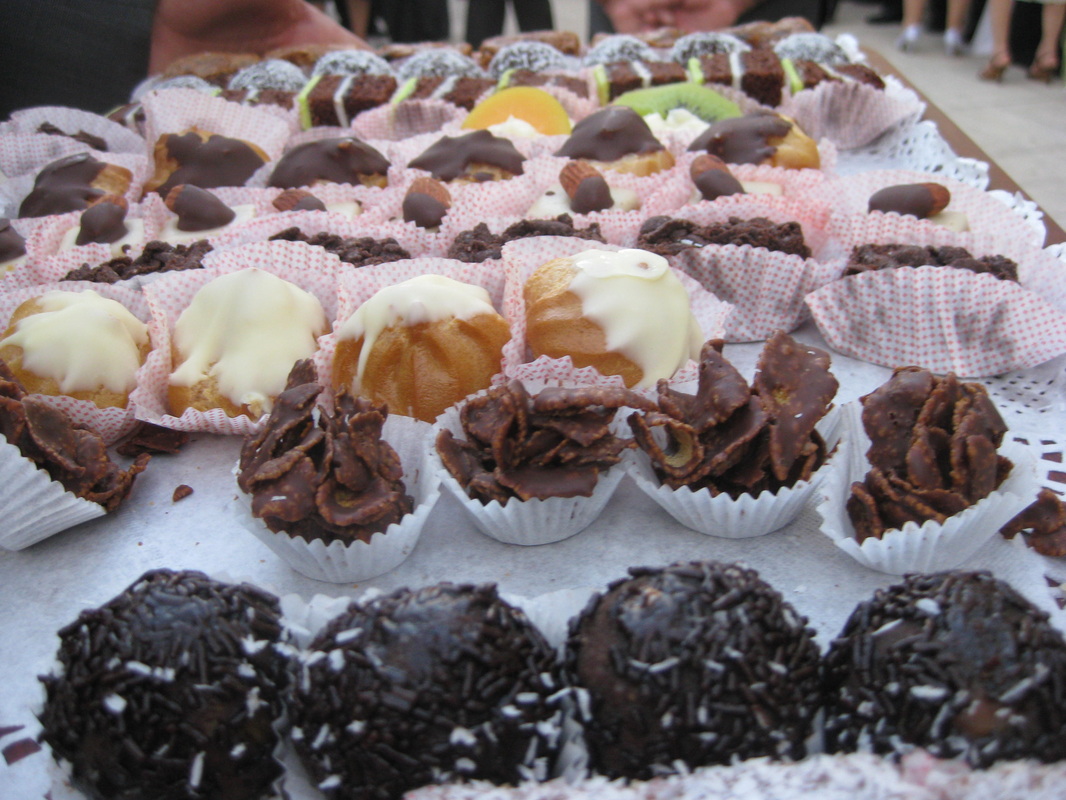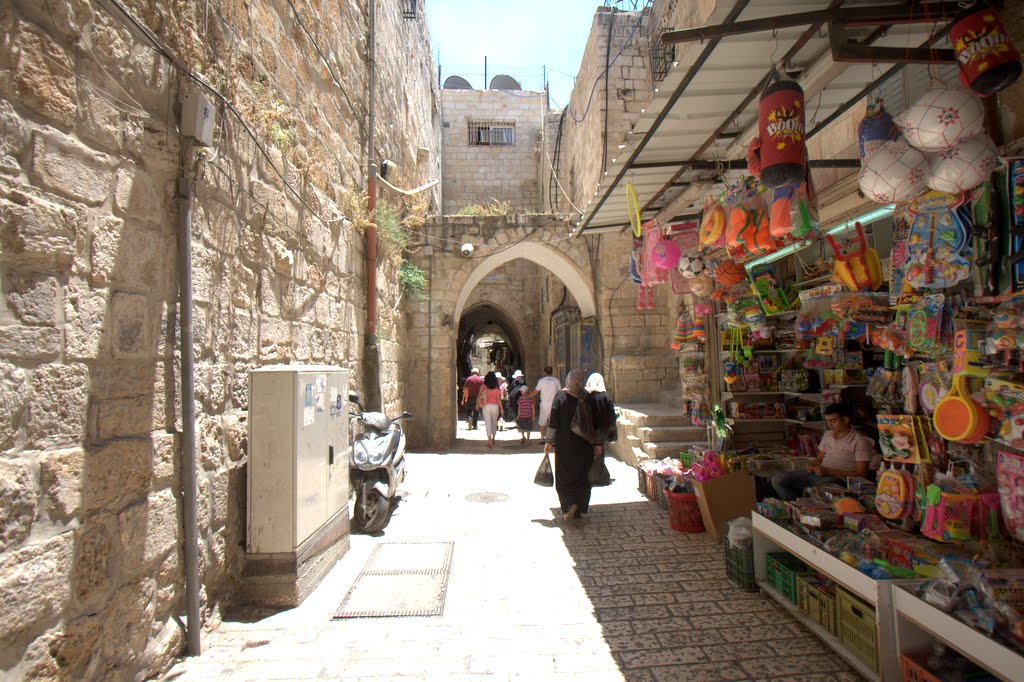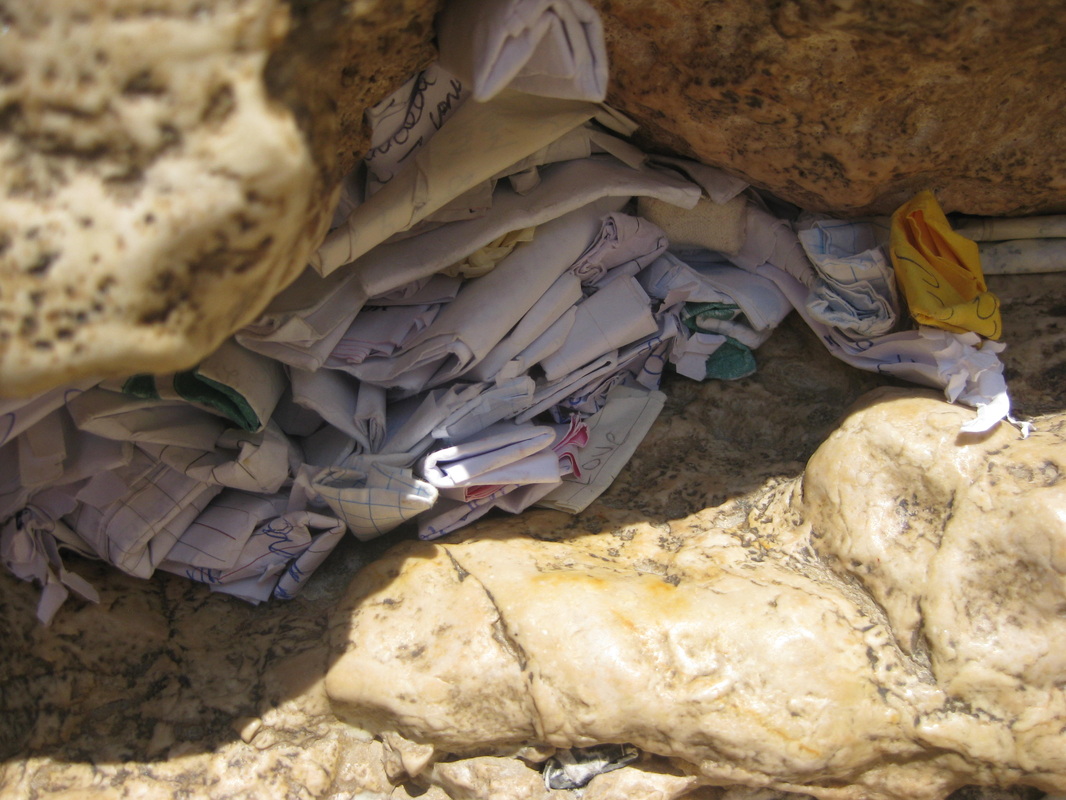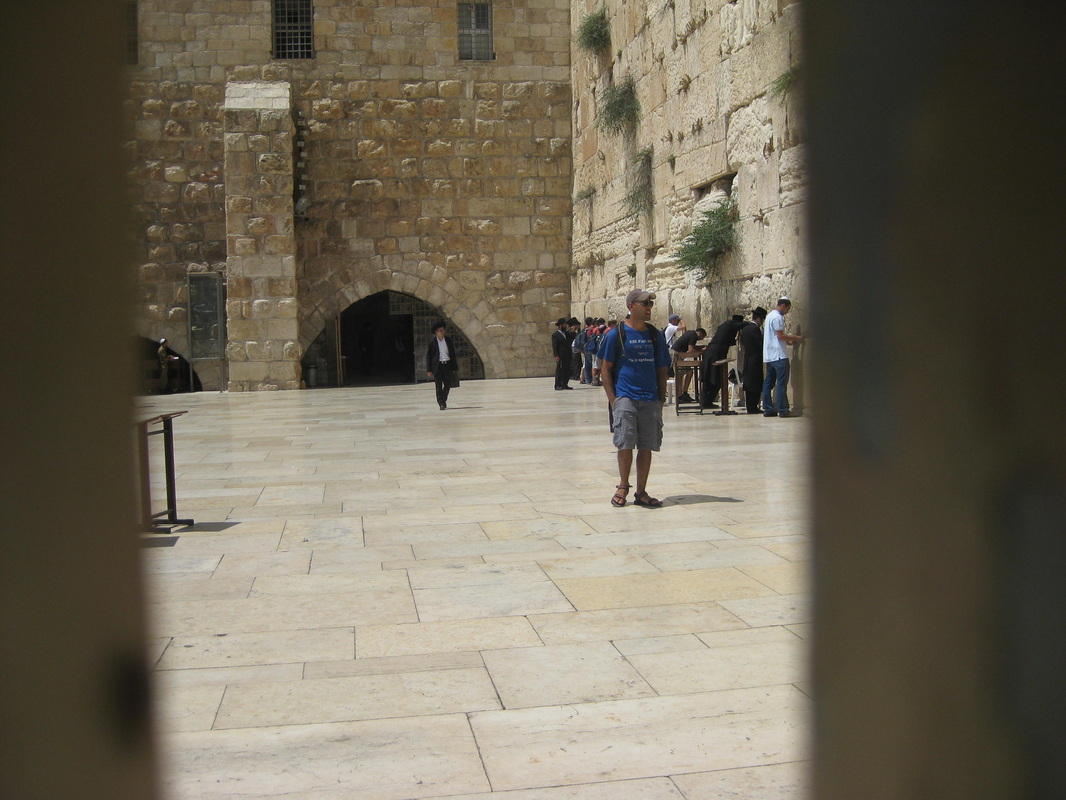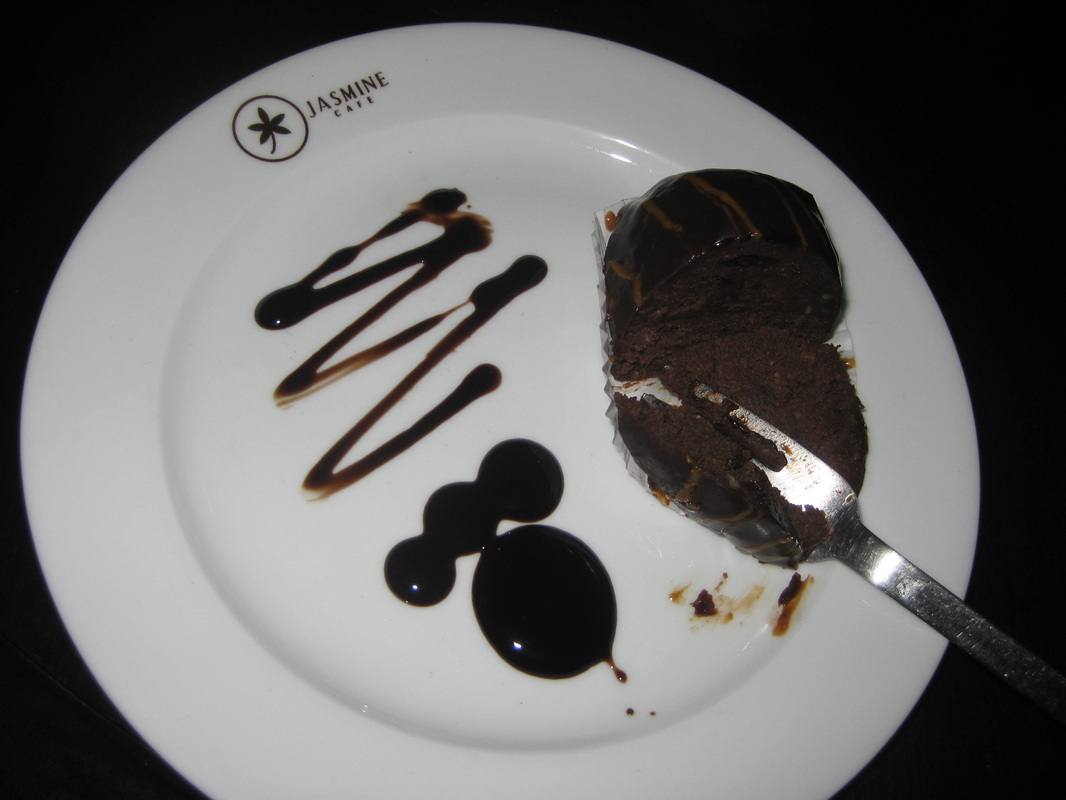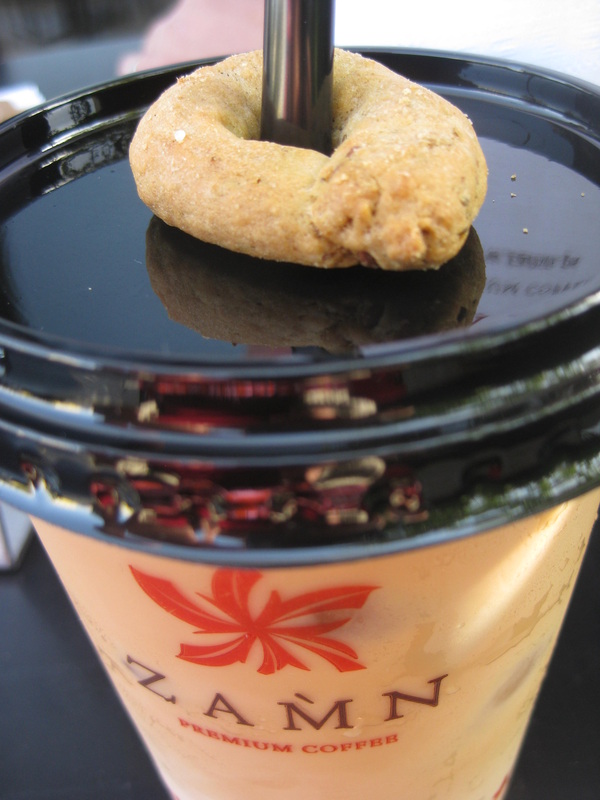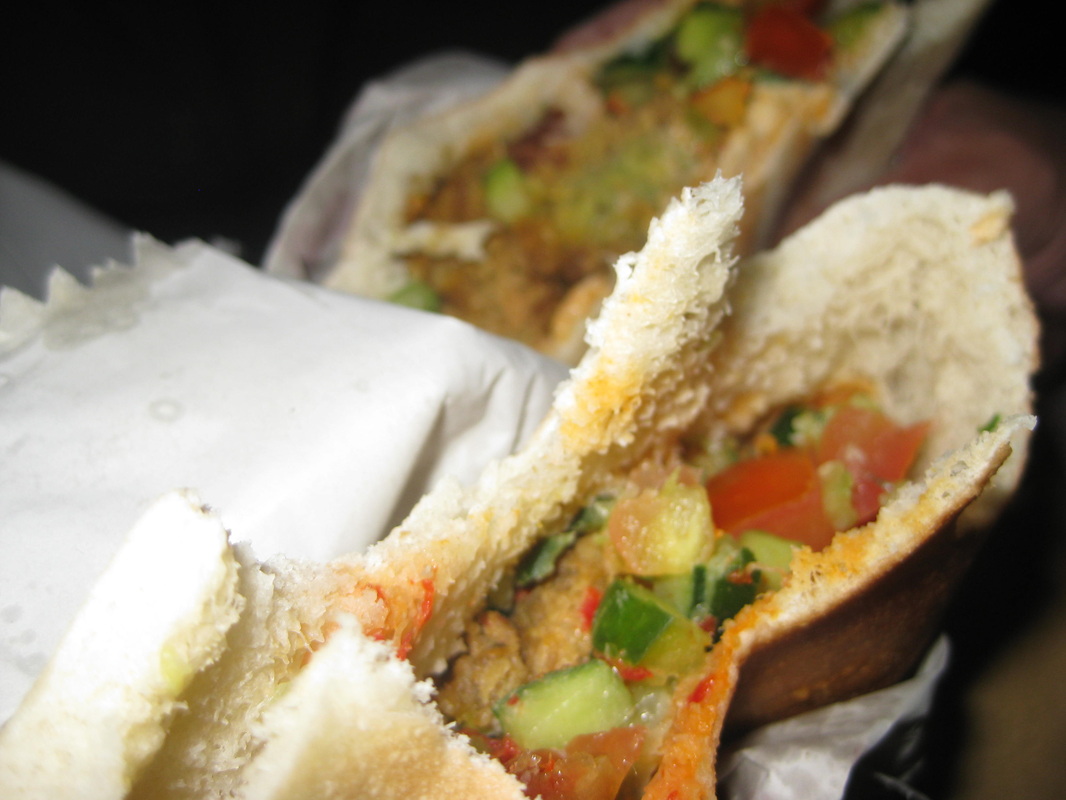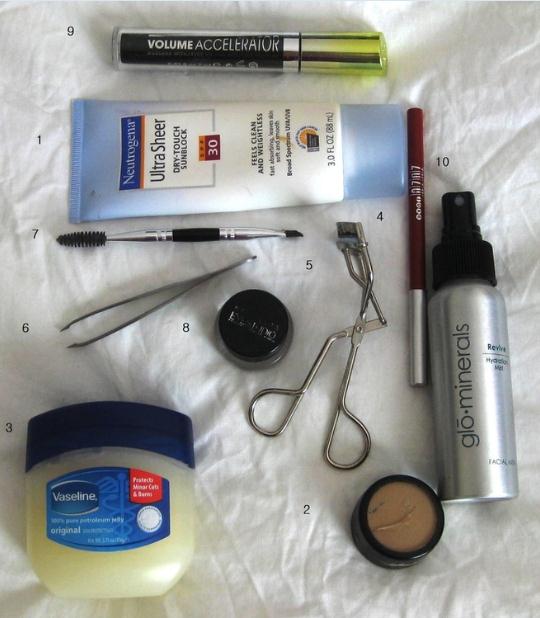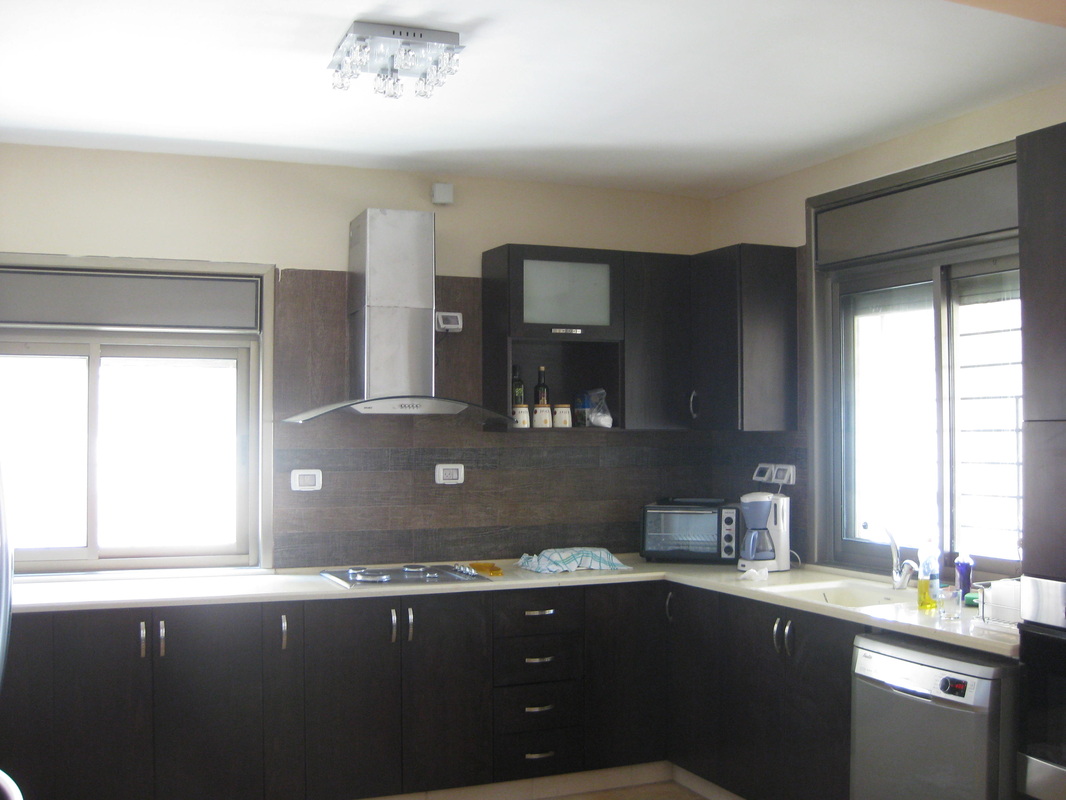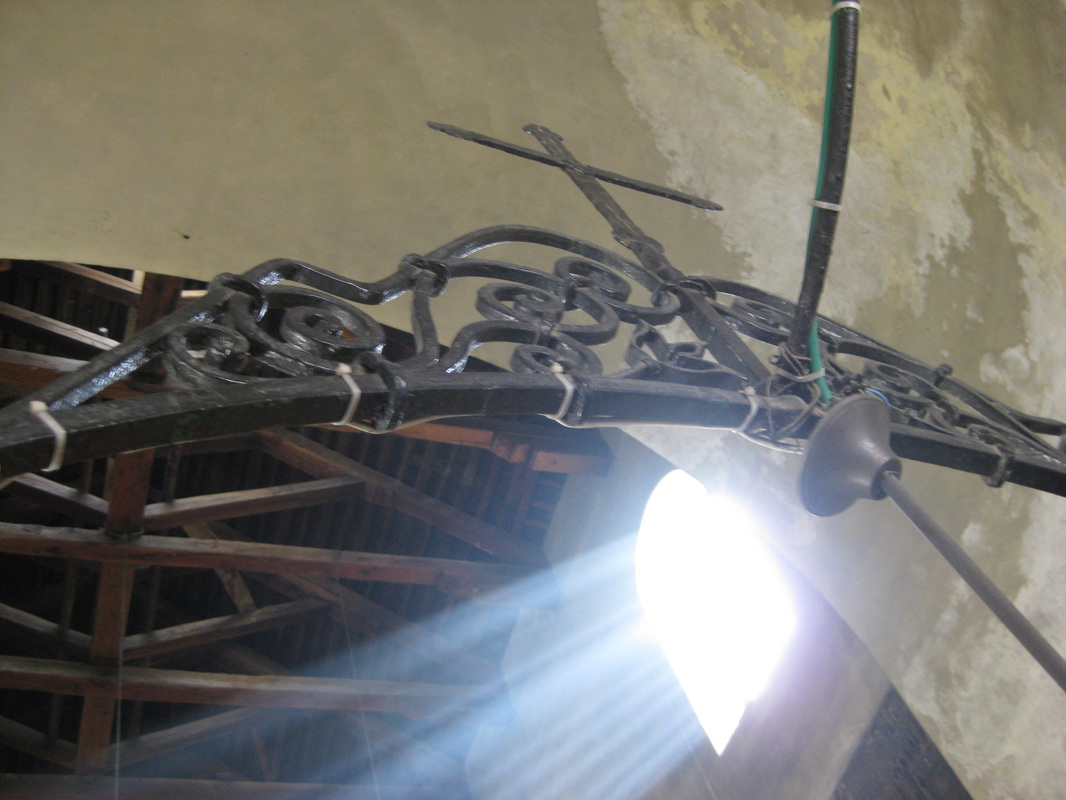Packing Ideas on Pinterest
 I've recently updated my packing list ideas board on Pinterest. It's a great resource that's updated as I find clothes and things that might be useful or beautiful for traveling. Check it out here.
I've recently updated my packing list ideas board on Pinterest. It's a great resource that's updated as I find clothes and things that might be useful or beautiful for traveling. Check it out here.
Still Deeply in Labneh, I Mean Love
Warning: Cheese Factor High
 I intend to get a little bit cheesy with this post, just to let you know that the romance is still alive out here, just a few days after our three month wedding anniversary.
I intend to get a little bit cheesy with this post, just to let you know that the romance is still alive out here, just a few days after our three month wedding anniversary.
Photo proof is a must, of course.
To the left is one of the gorgeous meals Charming put together on a recent low-key night in.
The white cheese slices are labneh, which we eat almost constantly. Labneh is a Middle Eastern cheese product so ubiquitous and so varied in its forms (yogurt labneh, creamy labneh, firm labneh, labneh with various seasonings) that we even made up a game inserting labneh into movie titles (ie, Rebel Without a Labneh) that was snorting good fun.
Apparently the proof of love is in the cooking. Here's another delectable light dinner Prince Charming prepared:
The fresh produce here this summer is the stuff of legend. As I write this, I am eating a Fuerte avocado that practically peeled itself out of its own skin. The pit smiled at me and jumped into the garbage on it's own. The creamy green meat is packed with flavor and is perfectly ripe.
Even though Charming does most of the cooking, lately I've been reciprocating with my latest obsession: green smoothies.
What have I learned in three months of marriage? Getting married and then moving to a land where neither of your speak the language or know anyone very well is a quick way to learn exactly how each of you respond to stress, loneliness, and a completely new environment. There have been arguments with very fast resolutions, as each of us quickly realize we better be nice to each other since we are each other's only friend here. The low times have been balanced out with the fun we've had together seeing wonderful new sights, eating delicious new food, meeting people together, and many shared frustrations, I mean adventures.
Wedding Bells in Ramallah
Charming's Co-Workers Tie the Knot
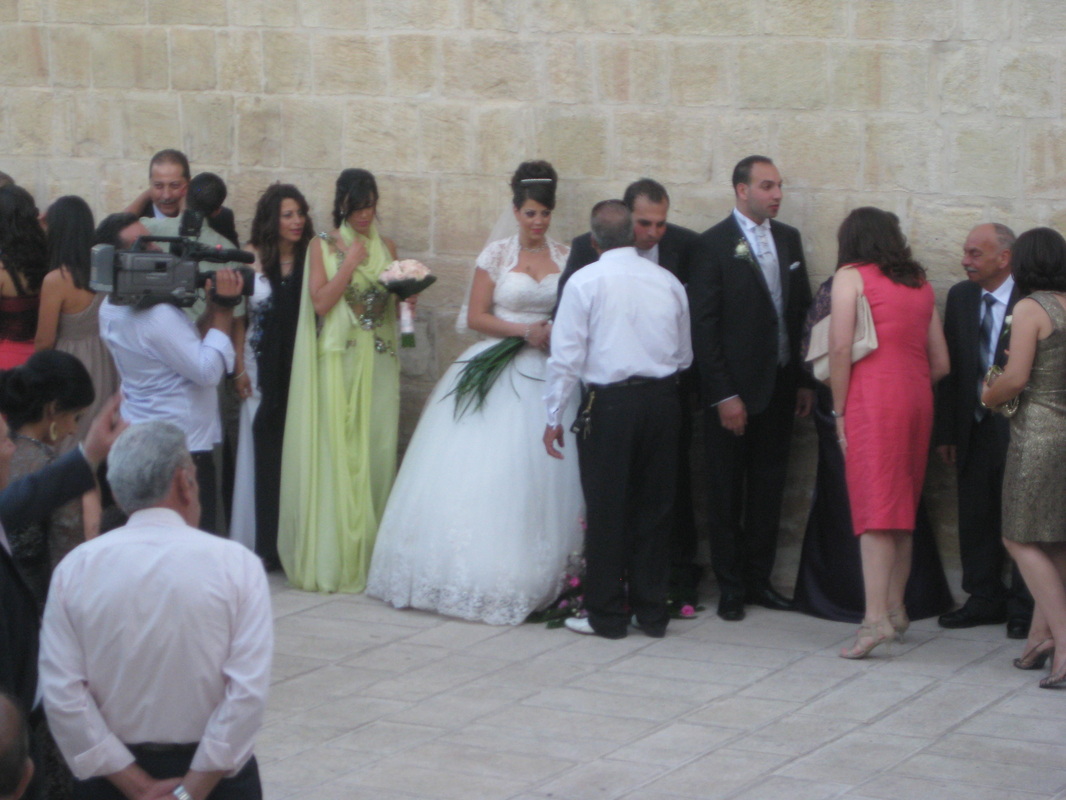 Ooh, look how beautiful the bon bons were. Along with champagne, what a great reward for sitting through an hour-long church service in a language we don't speak yet (Arabic).
Ooh, look how beautiful the bon bons were. Along with champagne, what a great reward for sitting through an hour-long church service in a language we don't speak yet (Arabic).Some of Charming's co-workers were there, and told us about other local weddings. Apparently when it's a Muslim wedding (this was a Christian one) the men and women party separately.
Two days after this wedding, my prince got to attend a Muslim wedding in Gaza. The men got together to drink Coke, and someone announced that the couple was now married and made a little speech. He said it lasted about 15 minutes and he even got a little party favor gift. The women were celebrating in another room. No, the bride was not present at the announcement of her marriage to the men. But the groom did get to attend the ladies celebration.
Religion Evolving
Images and Thoughts on Religion and Conflict from Bethlehem and Jerusalem
After going through checkpoints a number of times now, and having visited a few of the holy sites in Jerusalem this weekend, I personally have to report a surprising sense of heaviness in the air in this part of the world. It really shouldn't be surprising, since there is so much impotent rage here, yet I also expected to find a spiritual feeling here. Places that are very spiritual tend to feel light to me. Another way of saying it is the air feels thin. These thin places seem closer to awareness, awakening, or salvation.
Instead of finding that lightness, that transformative essence, in Jerusalem, my spirit felt weighed down. Perhaps this was because of being denied entrance to a holy site because I am not Muslim (How could they tell? The color of my skin and the showing hair on my head, I think). Perhaps because of all the checkpoints, the guns, the soldiers, and the guards. Finally, it could have been the overwhelming crowds, heat, and incessant marketing of low-value souvenirs.
The land conflict here is certainly tribal. And religious. And those two are connected here in a way that is hard for me to understand. In the U.S. it's fairly common to separate our religion from our tribe.
There are a lot of problems with religion. Two groups very aware of these problems are thoughtful residents of the Middle East and thoughtful American religious believers. I was one of the latter group as recently as two years ago (I still consider myself a Christian, although my beliefs are such that many Christians would say that I am not one, but that's another story). Young, thoughtful believers are leaving the church in droves, leaving the remainder to ask why.
There's a common phrase people use to describe the state of their soul-beliefs. I heard it a lot in Los Angeles: spiritual but not religious. I believe that those who describe themselves this way are part of a cultural trend that will, I hope, result in the evolution of religion. In A New Earth, Eckhart Tolle writes "The new spirituality, the transformation of consciousness, is arising to a large extent outside of the structures of the existing institutionalized religions."
Religion is where spirituality and community come together. The essence of spirituality is this: we are all connected to everyone and everything. The essence of community is this: we love each other no matter what.
Yet often religion, which should be the nexus of the two, separates us and makes it all too easy to define and differentiate between those who deserve our love and those who don't. Religion seems to specialize in black and white. Not grey.
What I know from my personal spiritual evolution is that for a long time, I couldn't handle grey area. The certainty of dogma appealed to me. Here is what is right, here is what is wrong. I still believe in absolutes truths, but I don't think any one religion has them all.
For me that moment when I could think "Ah! I don't have to actually believe, literally, that Mary was a virgin to learn from her example of purity of heart, faith, and maternal love. She said yes. What a beautiful metaphor. Maybe I can say yes too," was a life-giving breakthrough. It freed me to have faith and spirituality without leaving my brain behind.
From that point, I realized most of what I had tried so hard to believe -- much of it unpalatable to the intellect -- were teaching metaphors, not absolute truths. Taking them seriously and intensely is very important. I think this is why many people feel they must believe in such a literal way. If it's not true, it has no value for them. Yet there is great value in art, in literature, in many things created by humans to express life-giving concepts.
Perhaps the best hope for peace here in the Middle East is what Tolle calls "a large-scale opening of spirituality outside of the religious structures."
I'm not sure anything could have confirmed my decision to change my thoughts on religion a couple of years ago more than visiting Jerusalem this weekend did. When I was in Jerusalem, it was evident to me that all three monotheistic religions come from the same source, and therefore what they teach cannot all be true in the literal sense. What was also clear is that what people here are fighting for is not love, freedom, salvation, peace, or any of the things that their religions promise. What people are fighting for is the right to identify with a place and say that it belongs to them because of what they look like, who their ancestors are, and what they call themselves. It's not about spirituality. At best, the fight is about heritage. About history. And I believe all the people in the world should be able to respectfully visit heritage sites and pray --or not-- in the way they choose.
I understand the good heart behind religion; it's about helping people have hope and peace, and in tribal cases, reminding people where they come from.
I believe that about Israelis and Palestinians, and I believe that about you and me. Yes indeed.
"I imagine that yes is the only living thing.” - E.E. Cummings
Right now, I'm saying yes to watching the fading light of the glorious post-sunset twilight here on my balcony in Ramallah. The air here, on the outskirts of town, is lighter than in the big metropolis of Jerusalem. Kids scream with delight as they play on the street several levels below. It is a spiritual moment, my daily bread today. You are here with me, as I imagine you experiencing your own diverse daily bread moments all over the world.
Minimizing Makeup
Happiness is a light makeup bag.
- 1. Neutrogena Ultra Sheer Dry Touch Sunblock SPF 30: Sunscreen is an always-must-use. Every single day. I make sure to put a double dose it on places that face the noon sun: the top of my nose, my shoulders, and my boobs on a perky day. I'm looking for a better sun cream since this one smells chemically and feels bad on my skin.
- 2. Concealer: This is a little container of the remainder of a large tube I had before I left. It is Sheer Tint Base from Glo. A little goes a long way. The original tube lasted over a year. I really like this product.
- 3. Vaseline: The Queen of multi-use products.
- I use this on my lips before lip color,
- Then I blend a little lip color with some Vaseline in my palm and use it as a cheek stain.
- I use it to groom my brows.
- I use it on small cuts or dry hangnails.
- I use it to remove eye make up.
- 1. Red color stick: This is an organic Zuzu Luxe lipliner in Hazelnut that I bought at Whole Foods in LA. It works great on top of Vaseline on the lips and as a cheek stain when blended with Vaseline.
- 2. Eyelash curler: Revlon, I think.
- 3. Brow Tweezers: Revlon. Also good for splinters and picking up very tiny things.
- 4. Brow/eye liner brush tool: I can use this to groom my browns and remove clumps of mascara. I use the other end to apply:
- 5. Gel eyeliner: Maybelline Eye Studio, in brown. I just smudge it on with the small slanted brush mentioned above and it seems somewhat waterproof.
- 6. Rimmel Volume Accelerator Mascara: In extreme black. Ick. I don't like this formula. It clumps my lashes together. When I run out I will try something else.
- 7. GloMinerals Revive Hydration Mist: This is a luxury item that my sister gave me, but for me it replaces powder as a setting agent and feels much better than powder in this hot, dry season. It smells and feels nice to spritz on at the end of doing make up.
Perfume to me does not count as make up. I'll have to do another post about my perfume needs, er, desires.
Finally, these are the products I use daily, but I brought more with me, and I haven't gotten rid of them… yet. I don't know if I will since, like jewelry, cosmetics don't take up much space and provide variety in looks when one's clothing choices are slim due to bag space.
Julie Gray in Tel Aviv
In one of those small miracles the universe provides, it happens that another female screenwriter with a passion for peace, creativity, and helping women, moved from Hollywood to the Middle East a few months before I did. I know, right?
Her name is Julie Gray. I found her through something she wrote for the Huffington Post, and later a mutual producer-friend in Hollywood sent us both a message: "Do you two know each other?"
I have hummed with resonance reading her blog entries about the big move. I almost feel she has saved me some writing time and certainly expressed some cultural differences in a unique and honest way that I love.
Read her adjustment-related entries here. She's living in a different area (Tel Aviv) and has a different background (she's Jewish) but a lot of what she writes is very similar to what I'm going through.
Four Different Kinds of Water Massage
 Prince Charming is smitten with the kitchen and has big plans for all the delicious things he's going to cook here:
Prince Charming is smitten with the kitchen and has big plans for all the delicious things he's going to cook here: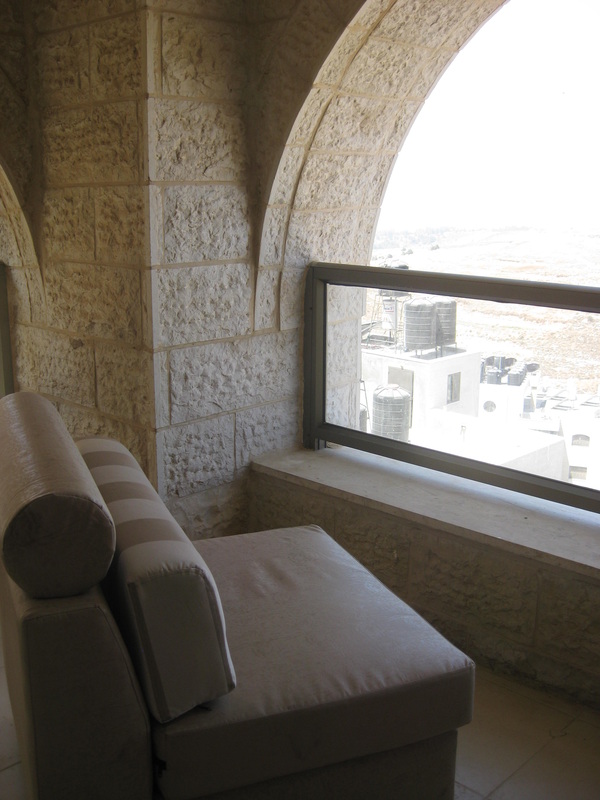 The view at sunset is spectacular. I'll think about taking some nice shots of the view for a later posting. In the mean time, check out the beautiful nighttime shot of Ramallah from our old patio that Charming took and posted on his blog.
The view at sunset is spectacular. I'll think about taking some nice shots of the view for a later posting. In the mean time, check out the beautiful nighttime shot of Ramallah from our old patio that Charming took and posted on his blog.
The new place has significant charms, including a shower with four different kinds of water massage and a radio. However, as of right now, the internet and hot water (as well as a long list of other lesser functions) are kaput. The landlord promised in a very passionate telephone conversation (passionate compared to US landlords, perhaps normal here) yesterday that we can trust him and that it will all be working very soon.
A Better Use for Cable Ties
He and the organization he works with, DCI-Palestine, http://www.dci-palestine.org/ completed a four year long study of the way Palestinian children are treated when they are detained by the Israeli military. [Background info: Since 1967, Palestinians in the West Bank have been prosecuted in Israeli military courts.]
Although the report is 142 pages to hold the data collected from collecting the testimonies of 311 children, Gerard distilled the information down the most important point, which is that the evidence shows a pattern of inhuman treatment of minors as defined in the UN Convention against Torture.
The number one detail that strikes me when reading the report is the brutal use of cable ties to hold the children's wrists together behind their backs. It was the number one complaint of detained children, present in 95% of cases.
One child said "Soldiers tied my hands behind my back with one plastic cord and tightened it so hard that I still feel pain in my right thumb which sometimes goes numb."
A better use for cable ties might be to hold cables in place, as illustrated in this picture I took in the Church of the Nativity in Bethlehem:
- Child is blindfolded (90% of cases)
- Physical violence (75% of cases)
- Arrested between midnight and 5 am (60% of cases)
Often the children are woken up from sleep by soldiers in their rooms pointing guns at them.
Gerard gave us a copy of the report. There's a lot of information in there, but the positive part that would improve the situation are four major recommendations DCI lawyers make that would "provide a series of simple and practical protective measures."
- An end to night time arrests.
- Children have access to a lawyer prior to questioning.
- All interogations be audio-visually recorded.
- Every child to be accompanied by a parent.
After the lecture and a short video, a man stood to ask the first question. He spoke in Arabic for about ten minutes. I was so bewildered that I almost left. I can't imagine a moderator at a U.S. lecture letting a question become a speech. Finally someone handed me a headset so I could hear the translation into English, which was happening simultaneously. It turns out that he'd been detained in the same prisons shown in the presentation and he was telling his story.
Others, both English and Arabic speaking, spoke with similar passion. "Why isn't the International community doing anything about the occupation? Why isn't United States doing anything?"

